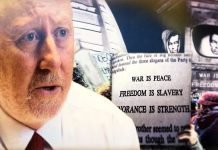Almost 50 UN human rights experts have condemned Israel’s plan to annex parts of the occupied West Bank, calling it a “vision of a 21st Century apartheid”.
UN human rights experts said on Tuesday that Israel’s plan to annex significant parts of the occupied West Bank would violate international law banning the taking of territory by force, and urged other countries to actively oppose it.
A joint statement, signed by nearly 50 independent experts, voiced dismay at US support for Prime Minister Benjamin Netanyahu’s “unlawful” plan for de facto annexation of land the Palestinians seek for a state.
Israel has occupied the West Bank and East Jerusalem since the 1967 Middle East war. It pulled its troops and settlers out of Gaza in 2005, but the UN says its occupation there has not ended.
More than 600,000 Jews live in about 140 settlements in the West Bank and East Jerusalem. Most of the international community considers the settlements illegal under international law, though Israel and the Trump administration dispute this.
Israel captured the West Bank in the 1967 Six-Day-War and has built dozens of settlements that are home to over 400,000 Israelis in the decades since. The Palestinians seek the territory as the heartland of a future independent state. Most of the international community considers Israel’s West Bank settlements illegal under international law.
President Donald Trump’s Middle East plan that was rolled out earlier this year, which overwhelmingly favors Israel and was rejected by the Palestinians, has given Israel a go-ahead for annexing Jewish settlements.
Most of the international community opposes such a move.
By Israel annexing large parts of the West Bank with the backing of U.S. President Donald Trump, the Middle East conflict threatens to escalate dramatically. In late January, the Trump administration presented its controversial Middle East plan, which provides for the annexation of Jewish settlements and the Jordan Valley in the Israeli-occupied West Bank. According to its coalition agreement, the new Israeli government led by Prime Minister Benjamin Netanyahu and his former rival Benny Gantz can make a decision on annexation as of July 1.
Doing so would represent the breach of a significant political taboo. All previous governments of Israel and the U.S. had ruled out such a step, as it would essentially mean the end of the two-state solution with an independent state of Palestine.
What do the UN experts say?
“The annexation of occupied territory is a serious violation of the Charter of the United Nations and the Geneva Conventions, and contrary to the fundamental rule affirmed many times by the United Nations Security Council and General Assembly that the acquisition of territory by war or force is inadmissible,” said the 47 experts, who are appointed by the UN Human Rights Council.
They added that the Israeli occupation was already a “source of profound human rights violations against the Palestinian people”, and that they “would only intensify after annexation”.
This is a vision of a 21st Century apartheid.
“Israel has recently promised that it will maintain permanent security control between the Mediterranean and the Jordan River. Thus, the morning after annexation would be the crystallisation of an already unjust reality: two peoples living in the same space, ruled by the same state, but with profoundly unequal rights. This is a vision of a 21st Century apartheid.”
Labour soft on condemnation
Sir Keir Starmer has opposed Israel’s plans to annex parts of the occupied West Bank, saying that it could be detrimental to security in the region.
But the Labour leader would not be drawn on whether the UK should sanction Israel if it does go ahead with the move.
In a call with reporters after the Q&A session, Starmer told Jewish News: “I don’t agree with annexation and I don’t think it’s good for security in the region, and I think it’s very important that we say that.
“Whether sanctions follow is another matter but at the moment let’s resolve this in the proper way. But this is not good for security in the region. That should be a paramount consideration.”
When pressed further, he added: “There needs to be a strong working relationship where we are able to exchange views frankly, as you would with an ally, and on some of these issues, a frank exchange is what we most need, I think.”
Prime Minister Boris Johnson said Tuesday that Israeli plans to annex parts of the West Bank would “amount to a breach of international law.”
Support Independent Journalism Today
Our unwavering dedication is to provide you with unbiased news, diverse perspectives, and insightful opinions. We're on a mission to ensure that those in positions of power are held accountable for their actions, but we can't do it alone. Labour Heartlands is primarily funded by me, Paul Knaggs, and by the generous contributions of readers like you. Your donations keep us going and help us uphold the principles of independent journalism. Join us in our quest for truth, transparency, and accountability – donate today and be a part of our mission!
Like everyone else, we're facing challenges, and we need your help to stay online and continue providing crucial journalism. Every contribution, no matter how small, goes a long way in helping us thrive. By becoming one of our donors, you become a vital part of our mission to uncover the truth and uphold the values of democracy.
While we maintain our independence from political affiliations, we stand united against corruption, injustice, and the erosion of free speech, truth, and democracy. We believe in the power of accurate information in a democracy, and we consider facts non-negotiable.
Your support, no matter the amount, can make a significant impact. Together, we can make a difference and continue our journey toward a more informed and just society.
Thank you for supporting Labour Heartlands












